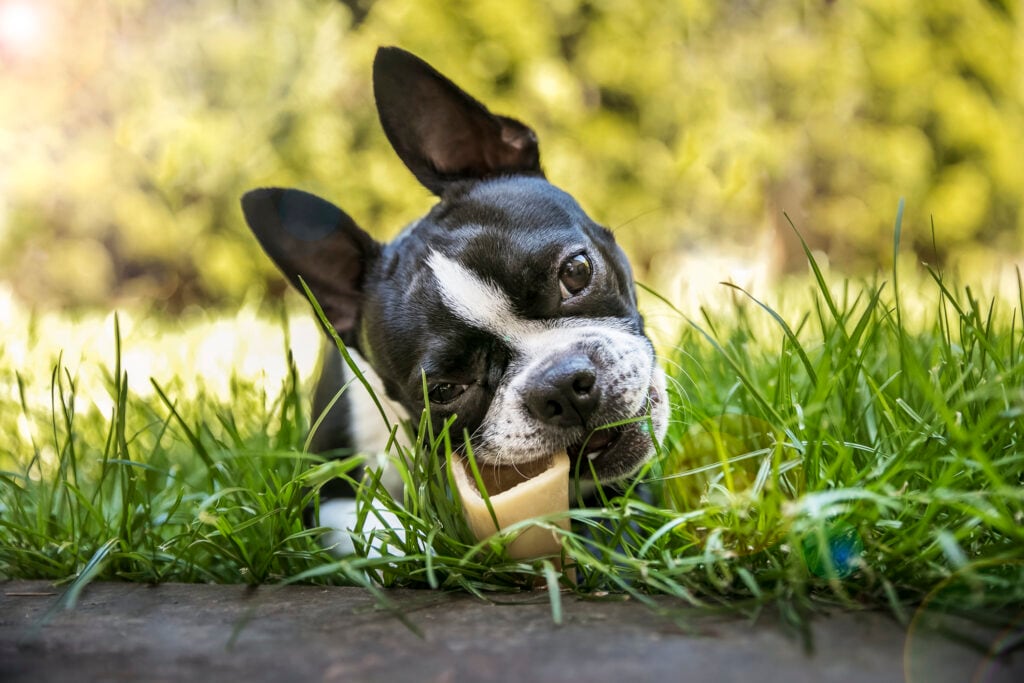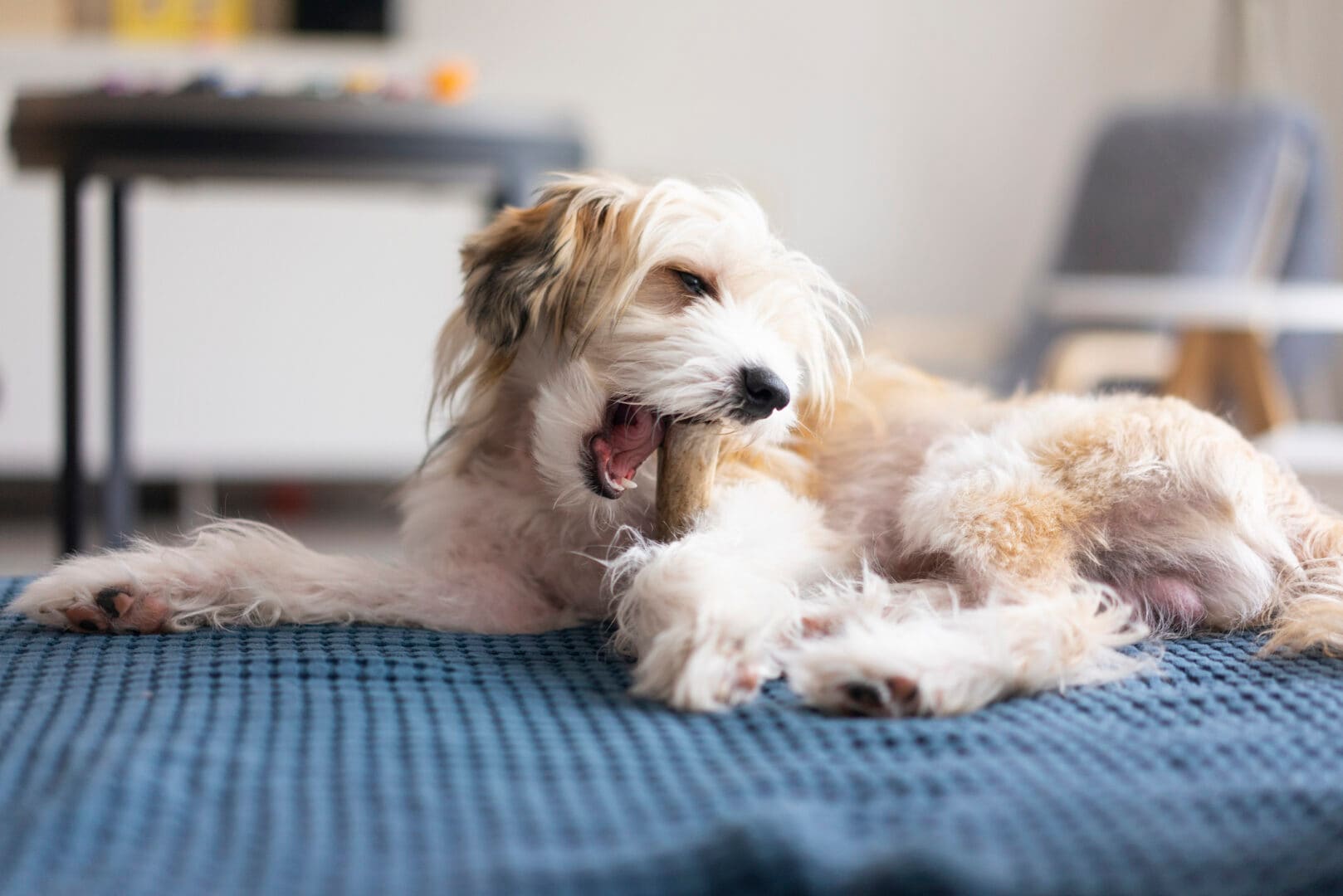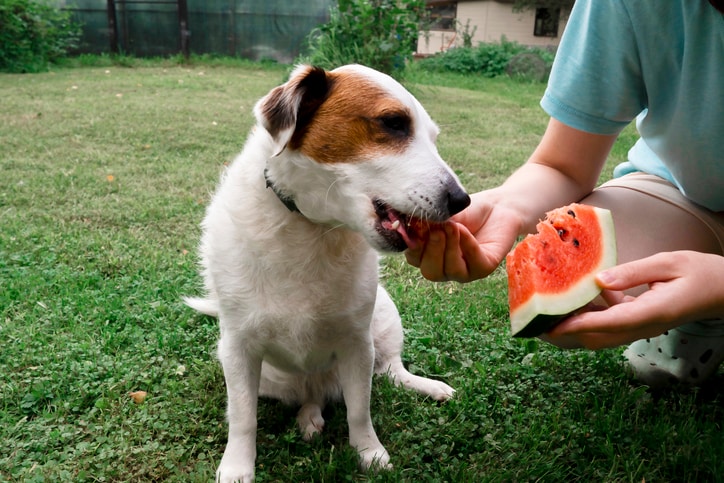After your latest cookout, you have a plate full of rib bones your pup has been eyeing. You wonder, “Can dogs eat rib bones?” You know dogs like to chew on bones, but there are some precautions you should take to prevent an injury to your dog.
It’s a standard recommendation in veterinary medicine to never feed rib bones or full ribs to your dog. “In fact, the Center for Veterinary Medicine [CVM] at the Food and Drug Administration [FDA] clearly states that we should not feed our dogs bones,” says Dr. Kurt Venator, a veterinarian.
Can dogs eat rib bones?
Bones, either cooked or raw, can splinter, which can pose a significant health risk to your dog. “Splinters and bone fragments, what we term foreign bodies, can get lodged in your dog’s gastrointestinal tract, causing serious health issues,” explains Venator. This applies to all types of bones, such as beef, pork and chicken bones. “While beef bones may be less likely to splinter than chicken bones, the reality is that all bones or full ribs present a clear health risk to our dogs — a risk that can be easily avoided.”
What if your dog really wants a bone?
If you do allow your dog to eat rib bones, give him raw rib bones, which are softer and pose less of a risk. But the risk still exists. “During the cooking process, the bones become harder,” says Kimberly Gauthier, a dog lover and a blogger at Keep the Tail Wagging. “As dogs chew them up, they splinter and become a health hazard that can lead to high vet bills and possibly death.” Cooking also removes the nutrition that’s contained in bones.
Gauthier recommends dog owners who want to add raw rib bones to their dog’s diet do so while supervising their dogs, and that they advise their dog sitter to do the same. Watch how your dog chews the rib bones and see if she swallows long shards of bones.
What are the risks of eating rib bones?
Aside from choking, your pup can also break her teeth and receive mouth or tongue injuries. Bones can also get stuck in the esophagus, causing dogs to gag and try to bring the bone back up. It could also get caught around the lower jaw which can be very painful and cost you a trip to the vet. More serious complications include the bones getting stuck in the windpipe, stomach, or intestines. This can require surgery for removal.

How do you properly dispose of rib or full bones?
After your cookout, it’s important to dispose your rib bones or full ribs properly once the family is done eating or the take-home boxes are brought in from the car. Proper disposal involves wrapping the bones or full ribs and making sure they’re safely contained in a sealed garbage container that can’t be accessed by your dog.
“When I think about my own family and our three Labrador retrievers, after a full barbecue spread or an expansive serving of Buffalo chicken wings, we always make it a point to package up the bones and immediately dispose of them in our sealed garbage can in the garage,” says Venator. In the case of bones, an ounce of prevention really can make a big difference in your dog’s health.
Stephanie Glover is the author and photographer behind A Grande Life. When she doesn’t have her camera in her hands, you’ll find her with a cup of coffee.
* This article is for general informational purposes only. It is not intended nor implied to be providing medical advice and is not a substitute for such advice. The reader should always consult a health care provider concerning any medical condition or treatment plan. Neither Care.com nor the author assumes any responsibility or liability with respect to use of any information contained herein.

